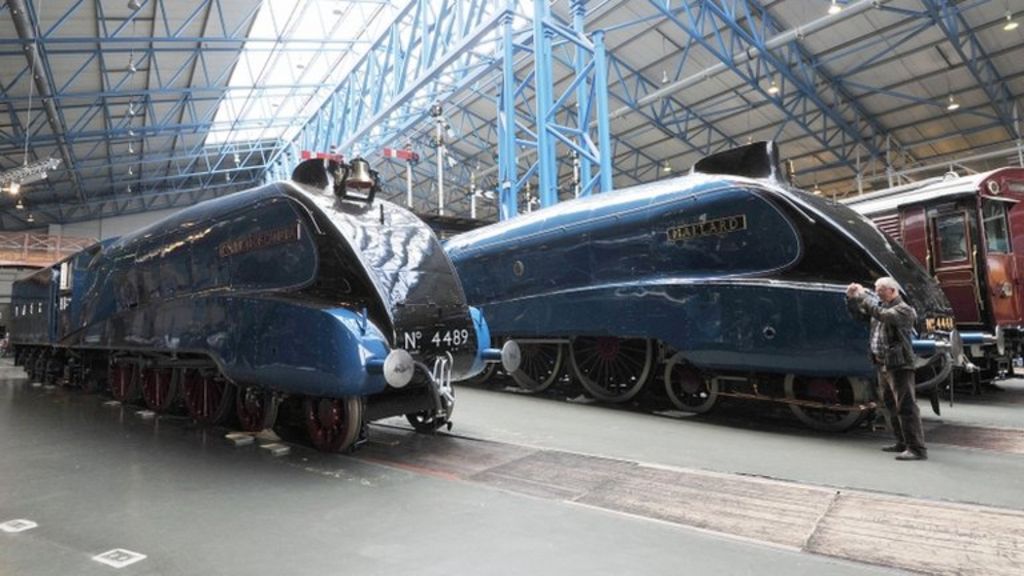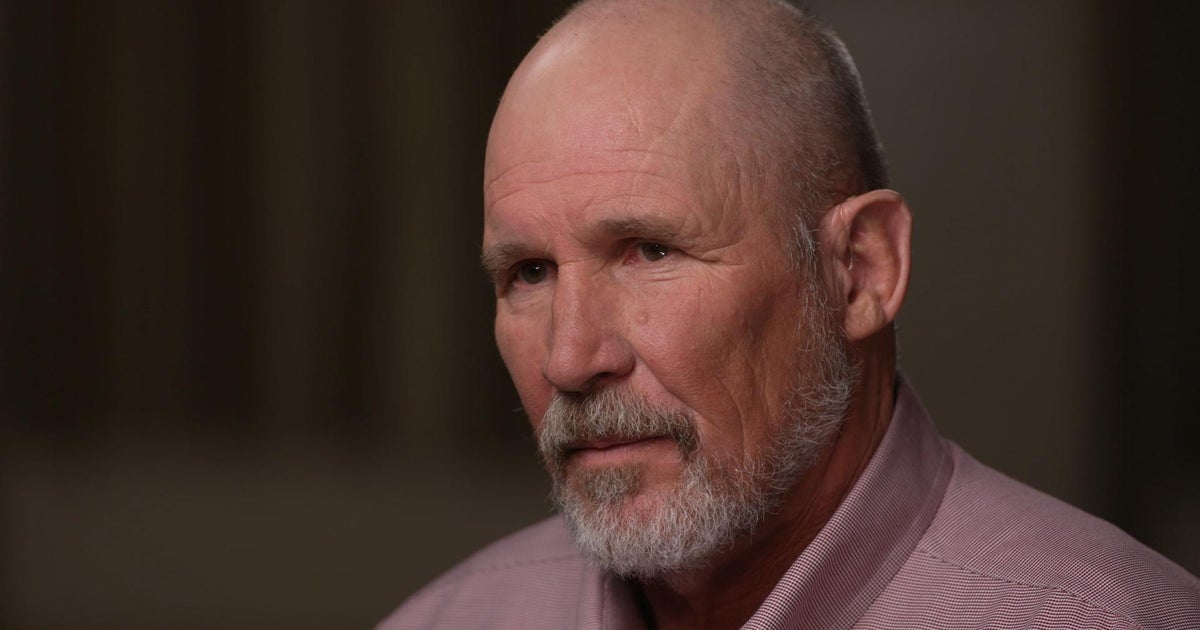Trump's Budget Cuts Threaten Museum Programs: A Critical Analysis

Table of Contents
H2: Impact on Educational Outreach Programs
Museum education programs are crucial for fostering a love of learning and history in young people and adults alike. Trump's proposed budget cuts directly threaten these vital initiatives. Funding reductions translate into a diminished capacity to engage the public and serve educational needs. This impact ripples through communities, impacting access to crucial educational resources.
-
Reduced funding for teacher training programs related to museum resources: Teachers rely on museum workshops and professional development to enhance their classroom lessons. Cuts to these programs limit teachers' ability to effectively utilize museum resources, impacting student learning.
-
Fewer free or discounted admission programs for underprivileged schools: Museums often provide subsidized or free admission for underprivileged schools, ensuring equitable access to cultural experiences. Budget cuts will likely eliminate or drastically reduce these crucial programs, limiting opportunities for students from low-income backgrounds.
-
Cancellation or scaling back of interactive exhibits and educational workshops: Engaging, hands-on exhibits and workshops are vital for making learning fun and memorable. Budget cuts mean fewer interactive displays and educational opportunities, reducing the impact and effectiveness of museum visits.
-
Loss of specialized staff dedicated to educational outreach: Museum educators are highly trained professionals dedicated to creating impactful learning experiences. Layoffs resulting from budget cuts will leave museums with fewer resources and expertise to develop and implement effective educational programs.
For example, the Smithsonian National Museum of Natural History’s renowned educational programs, including their popular Q&A sessions with scientists, are directly at risk due to potential funding cuts. This impacts not just DC schools but also impacts national outreach efforts. The term "museum education" takes on a new urgency when facing these cuts.
H2: Threat to Preservation and Conservation Efforts
Museums are the guardians of our cultural heritage, holding irreplaceable artifacts and collections that tell the story of our past. Trump's budget cuts threaten to compromise the preservation and conservation of these invaluable assets. The long-term consequences of neglecting preservation are irreversible damage to our shared history.
-
Reduced funding for artifact preservation and restoration: Preserving artifacts requires specialized expertise, materials, and equipment. Budget cuts mean less funding for crucial restoration projects, leading to the deterioration of valuable collections.
-
Inability to acquire new technologies and materials needed for conservation: Conservation science is constantly evolving, with new technologies and materials continually developed. Reduced funding will limit access to these advancements, hindering the long-term preservation of artifacts.
-
Potential damage to irreplaceable artifacts due to understaffing and lack of resources: Understaffing resulting from budget cuts increases the risk of accidental damage or neglect of delicate artifacts. Limited resources mean less preventative maintenance, increasing the risk of deterioration.
-
Loss of expertise due to staff layoffs in conservation departments: Experienced conservators are highly skilled professionals. Layoffs will lead to a loss of institutional knowledge and expertise, severely impacting future preservation efforts. Keywords like "artifact preservation," "conservation," and "museum collections" highlight the urgency of this issue.
H2: Economic Consequences of Funding Cuts
The economic impact of reduced museum funding extends far beyond the museum walls. Museums are major contributors to local economies, generating revenue and creating jobs. Trump's budget cuts will have wide-ranging negative economic consequences.
-
Job losses among museum staff and related industries: Museums employ a significant number of people, both directly and indirectly. Budget cuts will result in job losses not only within museums themselves but also in related industries like tourism and hospitality.
-
Decline in tourism revenue, impacting local businesses: Museums are major tourist attractions, drawing visitors from around the world. Reduced funding can lead to a decline in tourism, negatively impacting local businesses.
-
Reduced tax revenue for local governments: Museums generate tax revenue through admissions, sales, and related activities. Reduced funding leads to a decline in revenue for local governments.
-
Diminished cultural appeal, potentially leading to a decrease in visitors: Museums are integral to a city’s cultural appeal. Budget cuts, resulting in deteriorated conditions and fewer programs, could lead to a decrease in visitors, affecting both the museum and the local economy.
The impact of "museum economics" on a local and national level must be considered when addressing these cuts.
H2: Potential Solutions and Advocacy Efforts
While the threat is significant, there are strategies to mitigate the impact of Trump's budget cuts to museum programs. Active advocacy and a multifaceted approach are crucial.
-
Increased private funding and donations: Philanthropic contributions and private donations are critical for supplementing public funding. Museums must actively seek private support to mitigate budget shortfalls.
-
Government grants and alternative funding sources: Museums should explore alternative funding sources, including grants from foundations and other governmental agencies.
-
Public awareness campaigns and advocacy efforts: Public awareness campaigns are vital for mobilizing public support for increased funding. Advocacy groups must actively lobby government officials to restore funding.
-
Collaboration between museums and community organizations: Partnerships between museums and community organizations can leverage resources and broaden support for museums.
Conclusion
Trump's proposed budget cuts pose a severe threat to museum programs across the country, with far-reaching consequences for education, preservation, and the economy. The potential loss of vital educational outreach programs, the risk of damage to irreplaceable artifacts, and the negative economic impact on communities highlight the urgency of the situation. Museums are essential cultural institutions that preserve our shared history and provide invaluable educational opportunities. We must protect these vital institutions. Protect our nation's invaluable cultural legacy. Take action today to prevent devastating cuts to museum programs and ensure the future of our cultural institutions. Contact your representatives, donate to your local museum, or support advocacy groups fighting to protect museum funding and support museum initiatives. The preservation of our cultural heritage depends on it. Let's work together to secure the future of "museum program funding."

Featured Posts
-
 Positief Beurzenklimaat Na Trumps Uitstel Aex Winnaars En Verliezers
May 24, 2025
Positief Beurzenklimaat Na Trumps Uitstel Aex Winnaars En Verliezers
May 24, 2025 -
 Ray Epps Sues Fox News For Defamation The Jan 6th Allegations
May 24, 2025
Ray Epps Sues Fox News For Defamation The Jan 6th Allegations
May 24, 2025 -
 Finding Peace In The Pandemic A Seattle Woman And Her Green Space
May 24, 2025
Finding Peace In The Pandemic A Seattle Woman And Her Green Space
May 24, 2025 -
 Ihanete Gec Kalmayan Burclar Oefke Ve Intikam
May 24, 2025
Ihanete Gec Kalmayan Burclar Oefke Ve Intikam
May 24, 2025 -
 Memorial Day 2025 Florida Store Operating Hours Publix Etc
May 24, 2025
Memorial Day 2025 Florida Store Operating Hours Publix Etc
May 24, 2025
